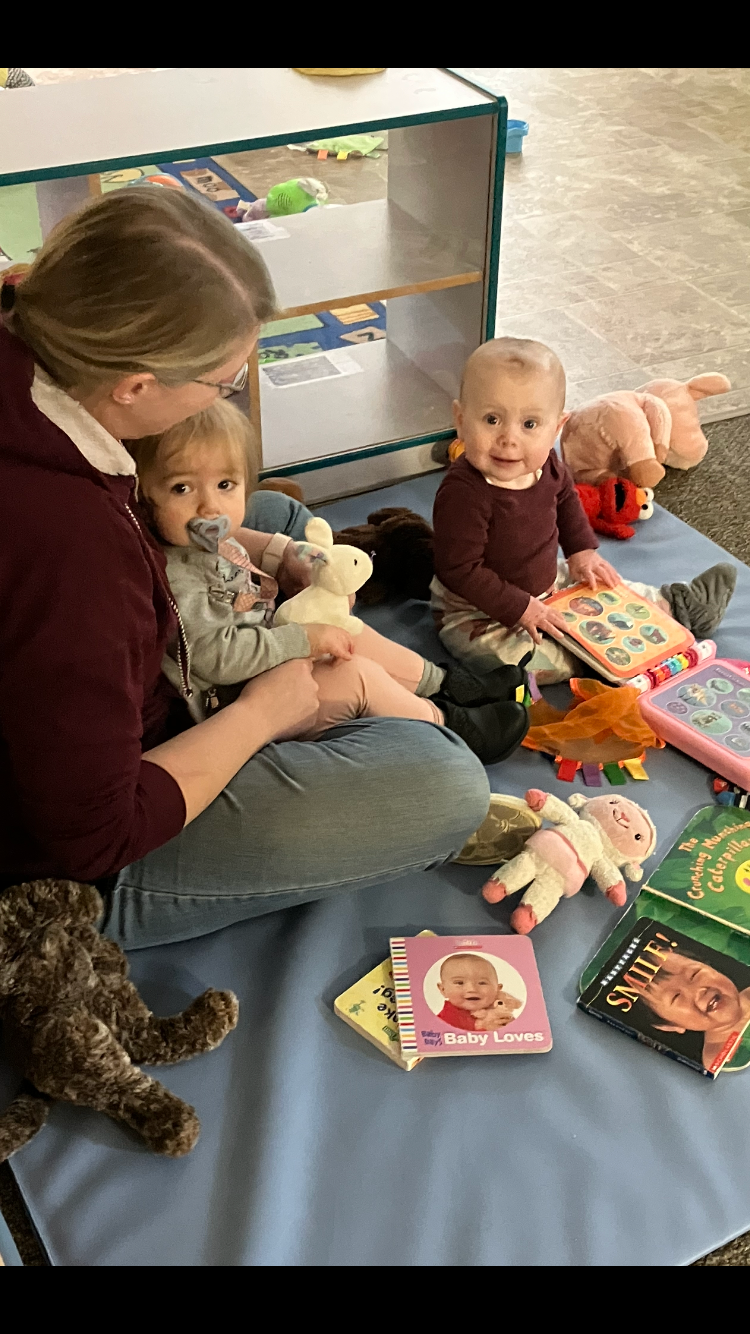We run the only licensed group child care center in town. Staying open is no certainty.
Editor's Note: This op-ed is part of a special report by the Ideas Lab on child care in Wisconsin ahead of a special session of the Legislature Sept 20.
Inspire Dreams Learning Center in Chilton (a city of about 4,000 in Calumet County) is the only licensed group childcare center in town and the surrounding rural “child care desert” area. We were founded by two women 12-years-ago in response to a community need when the only child care center in town announced its closure.
We began as a small center licensed for 28 children and have grown to a capacity of 114. There is a long waiting list for each classroom, anywhere from 6 months to 2 years. Despite this, we are operating 30 children below capacity due to a lack of staff.
Like many child care centers, Inspire Dreams struggles to find qualified teachers in the pay range of $10 to $13 per hour. On average, at least 40% of our employees qualify for some type of assistance such as Badger Care, Medicare or Food Share.

When COVID-19 hit, we answered the call to stay open
When the pandemic hit in 2020, early educators were called upon to save the day. While school districts and every other non-essential organization was shutting down to keep people safe, the Department of Children and Families here in Wisconsin “strongly encouraged” centers to remain open so healthcare, food supply and safety employees could get to work.
Despite the risks and challenges this created, many centers did remain open, including Inspire Dreams. Since the pandemic, the staff burnout rate has increased tenfold. Workdays are 10 to12 hours long, often with inconsistent co-teachers and extra duties. As children have transitioned back after the pandemic, there are ever increasing behavioral challenges.
The deficits in brain development, social skills, imaginative play, self-regulation and coping mechanisms in children are challenging to educators everywhere post pandemic. However for early learning staff, there is no support, aids or special education department. It is common for early educators to have multiple special needs children in their classroom while also being responsible for cleaning the classroom and bathroom, planning curriculum, assessing children and teaching.
During the pandemic, the federal government offered funding from the Coronavirus Relief Act to keep child care centers open. Wisconsin developed Child Care Counts to support early childhood education and retain staff. All staff at Inspire Dreams received a $200 to $500 bonus. A significant childcare discount and sign-on bonus were offered to attract new staff. The funding also allowed us to freeze tuition, despite the increased cost of food and supplies, to help families keep costs down.
More importantly, this funding promoted a sense of support and hope that early learning educators would be respected as the college educated professionals they are and would one day be fairly compensated for their important work.
Despite the best efforts of early educators, advocacy groups and the working families of Wisconsin to keep Child Care Counts in the 2024 biennial budget, it was not part of the state budget that passed in the summer.
Hope has turned to fear and struggle to keep the doors open. Since Child Care Counts funding was cut in half in May, tuition has increased 10% and staff bonuses have been reduced, causing some families and staff to leave already.

Child Care Counts made up nearly 25% of budget
Like many other centers, Child Care Counts dollars made up nearly 25% of our budget. When the program ends completely in January there will be some very difficult decisions to make. Many parents can’t afford this kind of price increase which will make access to quality care even less equitable. Staff can’t endure further cuts to their already low pay. The majority of staff has some type of college experience, including associates, bachelors or masters degrees.
More perspectives on child care in Wisconsin:
Wait lists. High costs. Poor quality. I don't work because of broken child care system.
Child care is collapsing. We'll all lose if more centers close their doors
Child care crisis costs state's economy $1.9 billion annually
With the workforce shortage, it’s easy for them to leave and make higher wages almost anywhere for shorter days and less stress. Entry level jobs in retail or the food industry even pay more than childcare.
By February, some estimates say 50% of child care centers across the state are projected to close which will further add to the workforce crisis in Wisconsin. Even though Child Care Counts was presented as a solution during the pandemic, it was supporting a crisis that began long before the pandemic. Businesses, legislators and the voters of Wisconsin need to come together to support funding solutions for childcare before it’s too late.
Nicole Grube and Heidi Brill are the co-owners of Inspire Dreams Learning Center in Chilton.
About this special report: We invited experts, providers and parents to provide perspectives as state lawmakers meet in a special session Sept. 20 to consider a plan by Gov. Tony Evers to provide $365 million for Child Care Counts, a pandemic-era program to keep early childhood education centers open. Evers and Democrats tried on multiple occasions to include $340 million in permanent funding for the program in the state budget was adopted last summer but Republican lawmakers included $15 million for other child care services instead.
This article originally appeared on Milwaukee Journal Sentinel: Daycare industry was distressed before COVID-19, funding was lifeline

